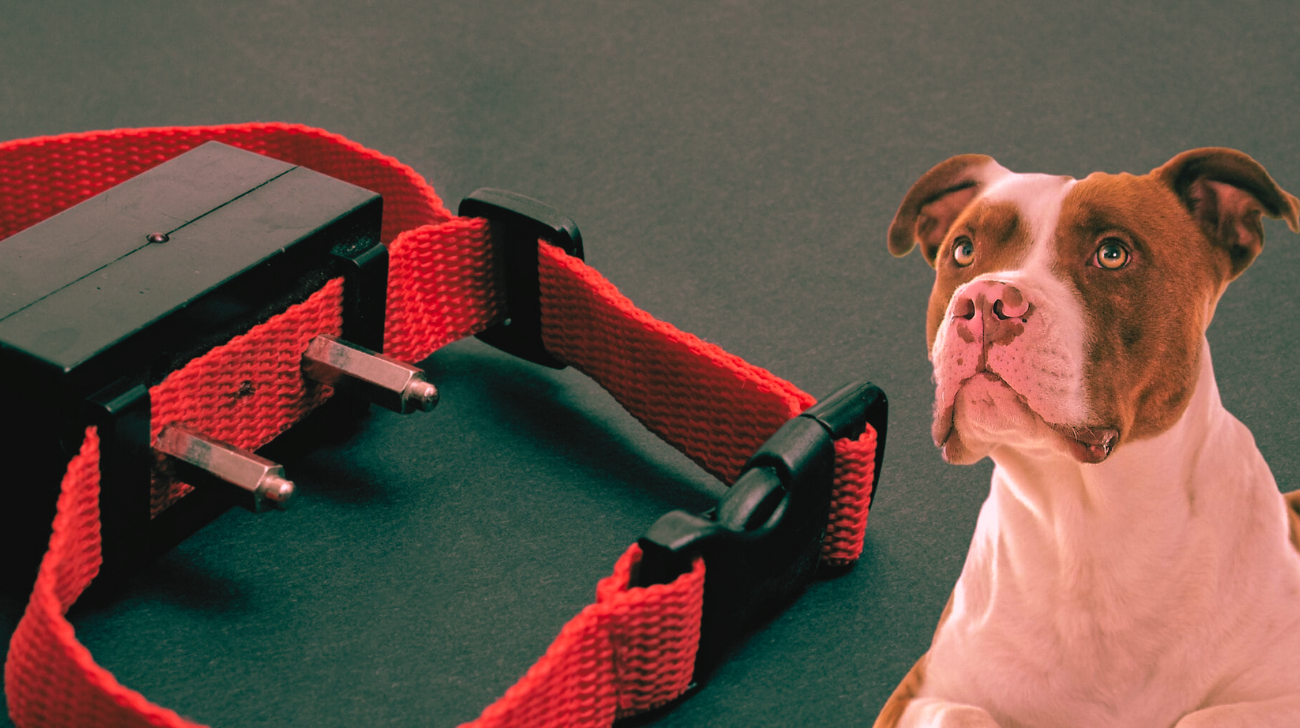Ireland is taking a significant step toward enhancing animal welfare by banning the use of manually operated electronic shock collars for dogs and cats. The gradual ban will be implemented through new legislation, allowing a phased approach that addresses existing use while preventing new adoption of these controversial devices.
Find out what color collar looks best on a Rottweiler to complement their bold appearance and highlight their unique features.
Blog Highlights
ToggleDetails of the Ban on Electronic Shock Collars for Dogs
The upcoming legislation will specifically target manually operated, remote-controlled electronic shock collars, commonly used for training purposes. Here are the key provisions of the regulation:

1. Registration for Current Users:
Pet owners already using electronic shock collars will be allowed to continue their use if they register within three months of the legislation’s enactment. This provision ensures a transitional phase for current users while stopping new users from adopting these collars.
2. Natural Phasing Out:
As registered pets pass away, the use of these devices will naturally phase out, leading to an outright ban in the future. This gradual approach avoids a sudden disruption for current owners while aiming for a long-term prohibition.
3. Exemptions for Specific Uses:
The ban applies solely to remote-controlled collars and does not include:
- Anti-bark collars.
- Collars linked to boundary fences or remote fencing systems for controlling other animals.
- Devices used on deaf dogs, which will remain exempt under the new rules.
Learn what size collar for a Rottweiler is ideal by following this detailed guide to ensure a perfect fit for your dog’s comfort and safety.
Why the Ban?
The decision to ban shock collars stems from growing concerns about their impact on animal welfare. Charlie McConalogue, Ireland’s Minister for Agriculture, Food, and the Marine, emphasized the ethical responsibility to treat pets with compassion and care.
“Dogs and cats are much-loved companions for so many of us in Ireland, and the use of manually operated remotely-controlled electronic shock collars is not an appropriate way to treat them,” said Minister McConalogue.

He also highlighted that organizations and individuals had voiced concerns about the physical and psychological harm these collars can cause.
The Minister credited the Advisory Council on Companion Animal Welfare, established in 2021, for its recommendations. The council’s advice has played a pivotal role in shaping the new regulation.
Discover the ideal option by exploring what is the best collar material for a Bichon Frise to ensure your pet’s comfort and durability.
Welfare Concerns Around Shock Collars
Shock collars are designed to deliver an electric shock to the pet, often as a corrective measure for undesirable behaviors such as excessive barking or disobedience. However, their use has been highly controversial due to the following welfare concerns:

- Physical Harm:
Improper use or high-intensity shocks can cause burns or pain to the pet’s skin. - Psychological Impact:
Dogs and cats subjected to shock collars often exhibit signs of fear, anxiety, and stress. Over time, this can lead to behavioral issues rather than resolving them. - Counterproductive Results:
Training experts argue that positive reinforcement methods are more effective in shaping behavior than punitive measures like shock collars. Using fear or pain as a deterrent can erode trust between pets and their owners. - Ethical Considerations:
Animal welfare organizations have long argued that shock collars are an outdated and inhumane method of training pets, especially when there are modern, kinder alternatives available.
Global Trends in Animal Welfare
Ireland’s decision aligns with a broader international trend toward phasing out electronic shock collars in favor of more humane training methods. Similar bans or restrictions have been introduced in countries like:
- England: Banned the sale of shock collars in 2018, with regulations emphasizing alternative training methods.
- Scotland: Issued guidance discouraging their use due to welfare concerns.
- New Zealand and Australia: Restricted the use of shock collars to prevent misuse.
These efforts reflect a growing consensus that the risks and ethical dilemmas posed by shock collars outweigh their perceived benefits.
The American Staffordshire Terrier’s coat type is short, sleek, and easy to maintain with regular brushing.
Alternatives to Shock Collars
As shock collars face increasing scrutiny, pet owners and trainers are turning to alternative, positive reinforcement-based methods for managing pet behavior. Here are some effective and humane options:

- Positive Reinforcement Training:
Rewarding pets with treats, praise, or toys for desirable behavior encourages them to repeat those actions without fear or pain. - Clicker Training:
A clicker device is used to mark the exact moment a pet performs the desired action, followed by a reward. This method helps reinforce behavior in a clear and non-threatening way. - Anti-Bark Collars Without Shocks:
Collars that use vibration or sound to deter barking are less invasive alternatives to shock collars. - Professional Training Programs:
Working with certified trainers can help address specific behavioral challenges while strengthening the bond between pets and their owners.
Public Reaction to the Ban
The ban has garnered mixed reactions from the public, with animal welfare advocates widely applauding the move. The Irish Society for the Prevention of Cruelty to Animals (ISPCA) has long campaigned for stricter standards in pet care and welcomed the legislation as a progressive step toward better treatment of animals.

However, some pet owners have expressed concerns about losing a tool they perceive as effective for managing difficult behaviors. Others worry about the exemptions for anti-bark collars and boundary fencing systems, questioning whether these devices might also pose risks to animal welfare.
The best collar size for an American Staffordshire Terrier ensures a comfortable and secure fit for your dog during walks and training.
How the Ban Will Be Enforced
Enforcing the new regulations will involve:
- Mandatory Registration: Owners of pets already using shock collars must register within the specified three-month window.
- Awareness Campaigns: Informing the public about the dangers of shock collars and promoting alternative training methods will be key to ensuring compliance.
- Inspections and Penalties: Authorities may implement inspections or penalties for non-compliance, although details on enforcement are yet to be clarified.
A Humane Future for Pets in Ireland
The ban on electronic shock collars for dogs marks a significant milestone in Ireland’s commitment to improving animal welfare standards. By phasing out these devices, the government aims to ensure that dogs and cats are treated with the respect and compassion they deserve.
As Minister McConalogue stated, “This regulation sends a clear message that the well-being of our pets is a priority.” With the gradual implementation of this ban, Ireland joins a growing list of countries taking decisive action to protect animals from outdated and harmful practices.
To find out the what size collar for an Affenpinscher, ensure you measure your dog’s neck correctly for a perfect fit.
For pet owners, this is an opportunity to embrace kinder, more effective training methods that build trust and strengthen the bond with their furry companions. The future of pet care in Ireland is one where compassion takes precedence, ensuring that pets thrive in safe and loving environments.








